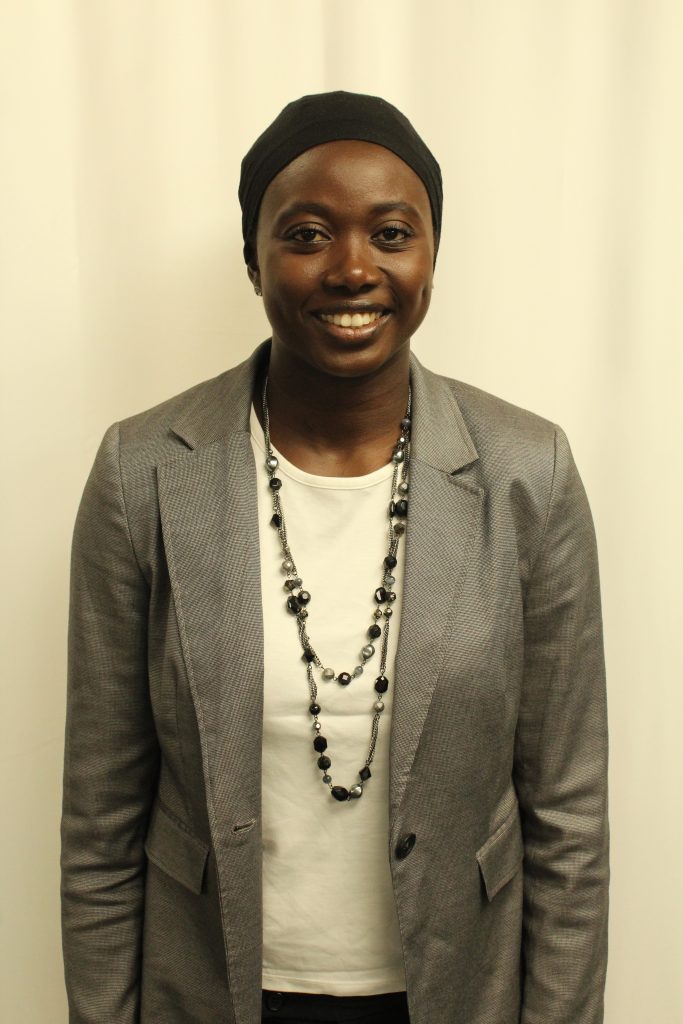
Growing up, Kike (pronounced key-kay) Omowumi Rafiu had to jump through hoops to get a pair of sneakers. Today, her nonprofit organization makes sure young girls in her position don’t have the same problem. None of this would have been possible, though, without one thing: basketball.
Rafiu, a Nigeria native, was hired as the director of operations for Binghamton University’s women’s basketball team in August. Though the sport plays a significant role in her life, Rafiu remembers a time when basketball was foreign to her.
“It was luck and it was coincidence, because I never knew what basketball was,” Rafiu said. “I just saw a boy with a pretty ball — that’s what I called it back then — and I was like, ‘What is that?’”
It didn’t take long for Rafiu to fall in love with the sport, and her hard work earned her a scholarship to play basketball in the United States. She finished her last two years of high school at Neumann-Goretti High School in Philadelphia, Pennsylvania before packing her bags for Georgetown University, where she got a scholarship. While she packed, however, Rafiu realized something.
“I had to start thinking of moving my stuff to college, and I had so many shoes,” Rafiu said. “That was the moment that hit me like, damn, there’s a lot of girls that are going through what I went through and I see no reason why I need six, seven, 10 pairs of sneakers when I barely wear them.”
She decided to take her excess shoes and clothes back to Nigeria and partnered with a high school there, donating her items to the basketball team. Thus, Rafiu’s nonprofit organization, Girls Rise Up, was born. It aims to empower girls in Nigeria by encouraging participation in sports, providing leadership skills and emphasizing the importance of education. Though the idea for Girls Rise Up was conceived in 2012, the organization officially came into existence in 2015.
Rafiu said that she drew from her own experiences when creating Girls Rise Up, since growing up as a girl who likes basketball was a challenge she wanted to help other young girls to overcome. She recalls being asked, “What are you doing with sneakers?” The challenges only continued when Rafiu came to the United States, especially as a black Muslim woman, but once again, her involvement in basketball motivated her to push forward.
“I’m not just a black girl, I’m also a Muslim black girl, so that’s like ‘triple jeopardy’ for me,” she said. “I think I give the utmost credit to my teammates, you know, they supported me all through it. Me, being a Muslim on the team, it’s just something a little different, something they’re not used to, but they really welcomed me, embraced me … they made it memorable for me.”
Still, Rafiu stated that being Muslim could go against her sometimes. In those moments, though, she encouraged students of color like herself to practice patience and to educate those making ignorant statements.
“I don’t care what color you are, you can find yourself making ignorant statements and later on, with the help of somebody educating you, you’d be like, ‘Oh damn, I messed up, I’m really sorry,’ you know,” Rafiu said. “It only went down the right way because you educated me in a polite, educating manner. And I think we students of color have to do that more.”
As for Girls Rise Up, Rafiu said she intends to expand the organization to the whole African continent. In her view, pushing girls to get involved in sports is important, but the educational and leadership building aspects of Girls Rise Up are much more long-lasting and far-reaching in giving girls a brighter future.
“Girls can, and I believe girls will,” she said.


